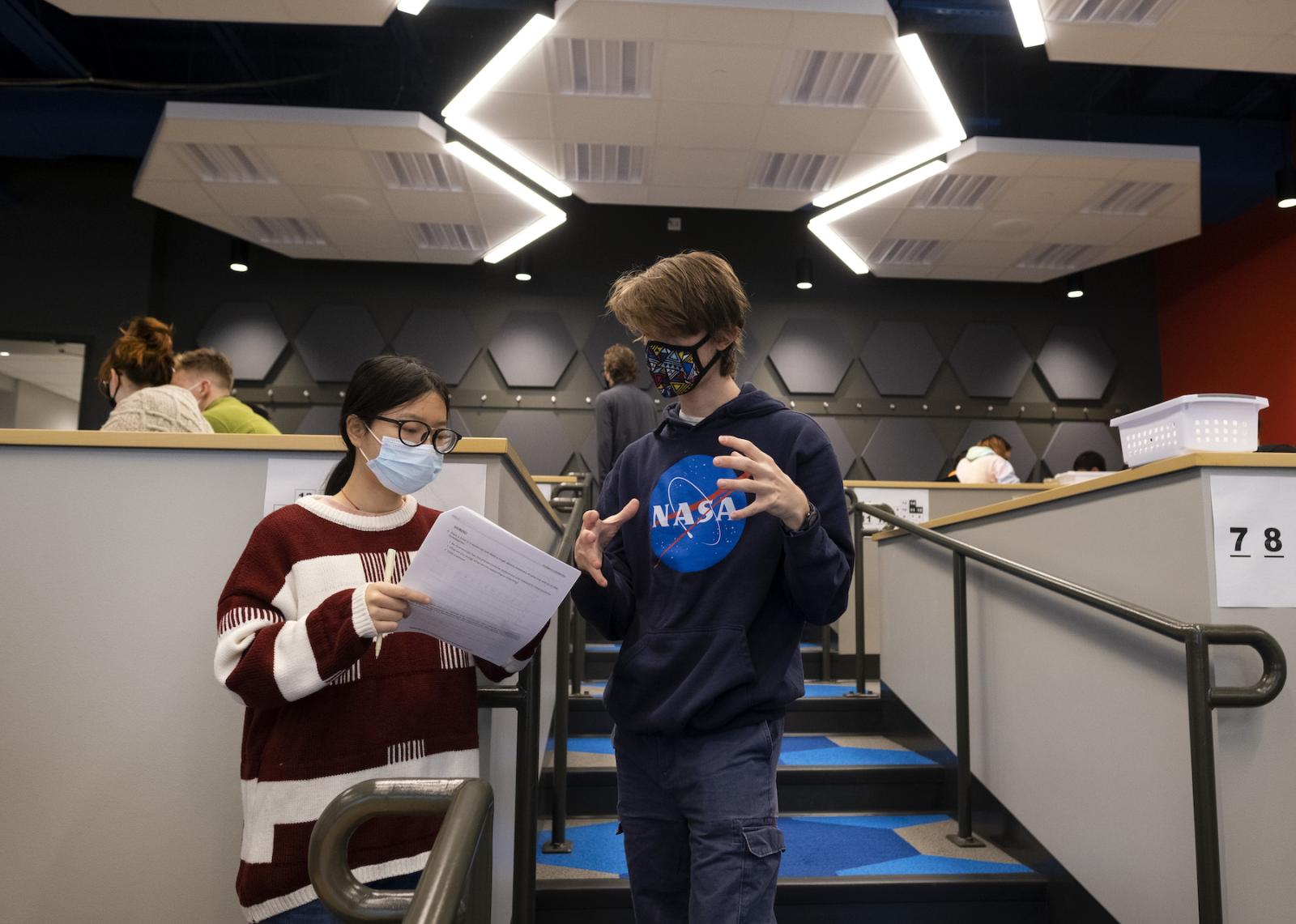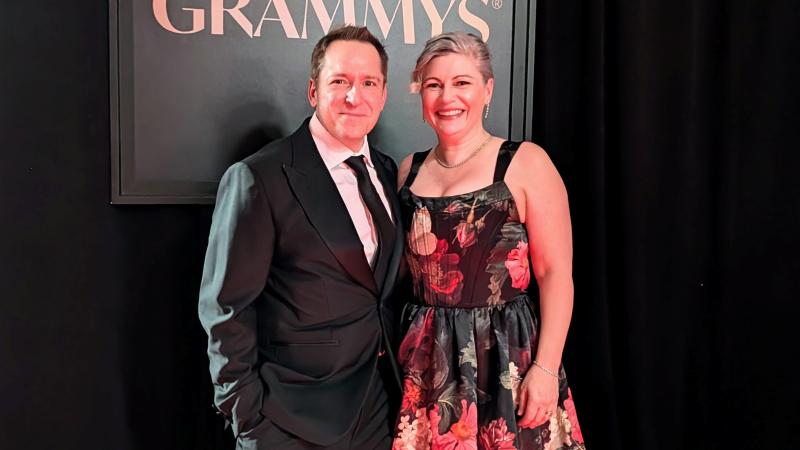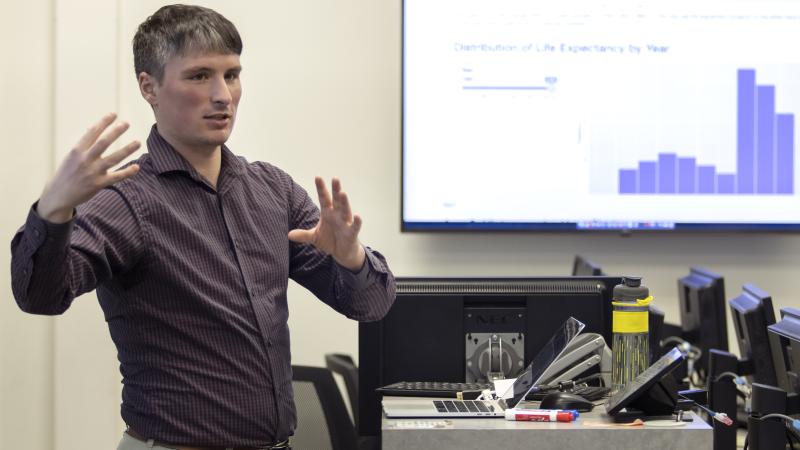Lawrence University is collaborating with two other universities in studying ways to improve problem-solving skills in introductory physics courses, funded by a three-year National Science Foundation (NSF) grant.
Lawrence, in conjunction with Purdue University and Jackson State University, received the $600,000 NSF grant as part of ongoing efforts in elevating undergraduate STEM education.

Megan Pickett
Megan Pickett, associate professor of physics, will lead Lawrence’s part of the project, working with two summer research students. It’s an extension of ongoing efforts to improve STEM studies at the introductory level, part of a previous $1 million grant from the Howard Hughes Medical Institute (HHMI) through their Science Education Program.
“By working with three different institutions, we will be able to pool a large data set on the effects of our educational interventions through different populations of students,” Pickett said of the NSF grant. “An underlying goal for all our work in improving the recruitment, inclusion, and retention of student populations that are typically under-represented in physics—a key goal of our previous efforts with the HHMI grant. This new NSF grant is a logical next step in that work and keeps the momentum moving.”
At Lawrence, the new grant will fund summer research, including salary, travel, publication, and equipment for a faculty member and two students over the next three years. The research will focus on deepening the conceptual understanding and problem-solving strategies in physics.
“The work will be applied locally by modifying key aspects of our Physics 141 class, already a testbed for improved strategies for inclusion and sense of belonging,” Pickett said. “Research students will participate in the design and analysis of our teaching tools and results.”
Pickett partnered with Nobel Rebello and Carina Rebello at Purdue and Tianlong Zu—formerly of Lawrence—at Jackson State in pursuit of the grant.
The grant for the project, titled Retrieval Practice Scaffolded Argumentation to Facilitate Problem Solving on Structured and Semi-Structures Tasks in Introductory Undergraduate Physics, is part of the NSF’s Division of Undergraduate Education (DUE) and the Improving Undergraduate STEM Education (IUSE) program.
“This continues our department’s long commitment to innovative teaching strategies, especially at the introductory physics level, where many students face challenges based on both the subject and their past experiences with it,” Pickett said.
There is a two-pronged strategy at work, she said. First, the grant will allow for research into teaching methods aimed at increasing the ability of beginning physics students to understand, solve, and assess physics problems that are relevant to their lives. Second, the grant provides an opportunity for Lawrence students interested in educational research in physics.
“One of our goals in the department has been to open many different pathways through the major, and one that we have wanted to expand for some time includes opportunities for students who plan to be STEM educators,” Pickett said.




